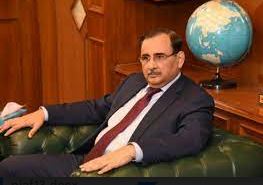DNA
ISLAMABAD: The Federation of Pakistan Chambers of Commerce & Industry’s Businessmen Panel (BMP) has asked the government to provide its economic stability plan to avert further losses, warning that numerous global issues are impacting world economies.
FPCCI former president and BMP Chairman Mian Anjum Nisar called for solid economic plan from all the stakeholders, in view of deteriorating energy crises following the tough conditionalities of the International Monetary Fund (IMF), making this fiscal year more complicated and difficult for the economy.
The government should consult the businessmen to formulate economic plan aimed at reviving growth in large-scale manufacturing, small and medium-sized segments, the service sector, he added.
The BMP chairman said the government should prioritize resolving the energy crisis by providing sufficient and affordable electricity and gas to industries. The import bill should be reduced by imposing bans on luxury products. He highlighted controlling inflation to ensure affordable living costs for the masses and containing the cost of production for businesses at a local level.
He stressed the need for a revisit of the economic policies, as the economic indicators throughout the 2024 remained very depressed amidst high inflation, low exports, depleting foreign reserves and continued uncertain position of the local currency.
Anjum Nisar said that indicators of the economy are not very good, including volatile exchange rate, unprecedented hike in markup rate, repeated increases in electricity rates, gas shortage, price spiral, mismanagement and bad governance, becoming the hallmarks of the government. He observed the negative economic indicators and uncertainty over resumption of the International Monetary Fund program continued to push the rupee towards a new historic low against the US dollar especially in first half of the calendar year of 2023.
He said that massive fall of rupee value continued to damage the economy, as the rupee witnessed a huge depreciation; one of the highest devaluations of local currency in Pakistan’s history in this period. Mian Anjum urged the policy makers to concentrate on increasing tax-to-GDP ratio which was the lowest in Pakistan in the region.
The FPCCI leader warned if the govt failed to take appropriate measures for economic revival, the trade and industry will face a complete shutdown, asking the government to convene a conference, taking the business community onboard.
The PIAF patron-in-chief observed that besides increasing exports and controlling imports the government will have to take administrative measures, as a large demand of cash dollars are seen in the market. He said that the monetary tightening and exchange rate depreciation resulted in higher inflation, public debt and debt servicing. The empirical evidence showed that the one percent monetary tightening hiked the inflationary pressure by 1.3 percent in the case of Pakistan, he added.
He urged the National Electric Power Regulatory Authority to reverse the proposed jump in power charges, as it has notified an additional fuel cost adjustment after a massive base tariff hike a day earlier, putting an additional burden of least Rs580 billion annually.
He said the government’s decision to increase the electricity tariff is anti-industry, and the BMP strongly condemns the government’s move and calls on it to rescind it. He urged the power ministry to identify system constraints and communicate targets to all concerned departments in order to launch a wartime effort to upgrade the transmission system.
He said that move would further burden the financially strained trade and industry.
As many as 32.5 million consumers are paying an additional amount of at least Rs580 billion in this fiscal year which is over and above the existing cost of electricity. He believed such an increase in tariff was due to the mismanagement and wrong energy policies of past three decades.
On June 14, Nepra had announced almost a 20pc (Rs5.72 per unit) increase in the uniform national tariff to ensure about Rs3.8 trillion in funds to the 10 Discos during the fiscal year 2024-25.
On top of this capacity charge increase, commercial and general services tariff would increase by 17pc (Rs5.89 per unit) to about Rs44.
The power division said the proposed tariff would generate Rs3.5tr to 10 Discos during the current fiscal year, about Rs580bn higher than last year.
After the impact of 18pc GST, the total revenue would reach around Rs4.2tr in addition to any further adjustments in the shape of monthly fuel charges and quarterly tariff adjustments for exchange rate, inflation and other factors.
The average national base tariff, including for K-Electric, has been worked out at Rs35.50 per unit for the next fiscal year, against Rs29.78 per unit for the current year. This would yield about Rs3.763tr in revenue to 10 Discos this fiscal year, compared to Rs3.28tr last year.
He said that Pakistan’s industry had been harmed by the high cost of doing business, which discouraged investment in capacity and capability and called for easing the burden of heavy taxes on the power sector. He said that the high cost of doing business has proved to be dangerous for Pakistan’s industry, discouraging investment both in capacity and capability, calling for lessening the burden of heavy taxes on the power sector.

















